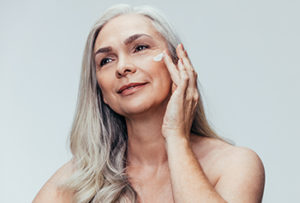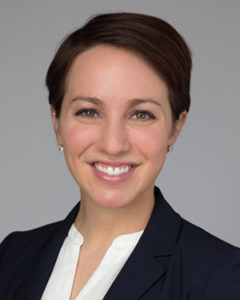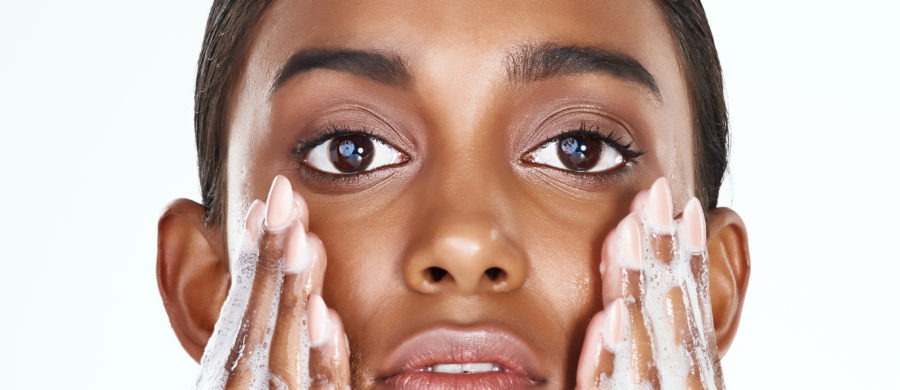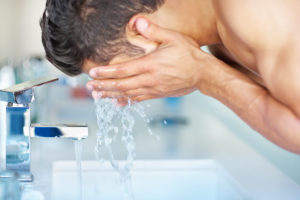Ever been overwhelmed by the number of serums, gels, masks, lotions, creams, and sunscreen options out there? How many products do you need to protect your skin and fight aging adequately? It’s really much simpler than you might think. Let’s dive in.
Here are the basics of what we want out of our skincare routines:
- Protection from UV Radiation – This is the most important. Anything else you’re using to fight the aging of your skin or improve its appearance will be undone by excessive sun exposure. So without this step, the rest really aren’t worth doing.
- Hydration – Our skin is constantly losing water in this dry Colorado climate. Keeping it well hydrated will protect it better from irritation and make it look plumper and healthier.
- Anti-Aging – Picking key science-backed ingredients in your skin products that help reverse some sun damage and promote new collagen formation can make a huge difference in your skin.
So, based on this, my skincare routine is really quite simple and fast. Here’s what I do:
Morning
- Wash your face with a gentle, non-soap cleanser such as Vanicream face wash or CeraVe foaming facial cleanser. If you have oily or acne-prone skin, you might swap this for a salicylic acid or benzoyl peroxide-containing face wash instead.
- Apply a Vitamin C-based serum to your face and neck. Vitamin C has been shown to help protect your skin from free radical damage incurred from sun exposure, pollution, and infrared radiation, as well as increase skin brightening. The key here is to pick a carefully formulated Vitamin C product from a reputable skincare line — if the concentration of the Vitamin C concentration isn’t in the correct range, or if it is not packaged in an opaque container, you won’t get any benefit from the product. I like SkinCeuticals CE Ferulic and Phloretin CF, as these products are some of the most potent formulations on the market. The Ordinary makes several options for more affordable but less powerful formulations.
- Apply a broad-spectrum sunscreen or moisturizer with SPF 30 or higher to the face and neck. Rub any leftover sunscreen onto the back of your hands. Do not skip this step even if you are not planning on being outside. We get UVA rays through car and home windows that contribute to skin aging even when we’re not directly in the sun. Pick a tinted sunscreen if you’re prone to pigment problems like melasma. These contain iron oxide, which protects your skin from visible light that contributes to worsening pigmentation. Some of my favorites are Elta MD UV Clear, SkinCeuticals Physical Fusion UV Defense, and Alastin’s Hydrating Pro.

Retinoid products, such as over-the-counter retinol or prescription tretinoin cream, help prevent acne, minimize fine lines, promote new collagen formation, and even skin tone and texture.
Evening
- Wash your face with a gentle, non-soap cleanser again.
- Apply a retinoid cream, such as over-the-counter retinol or prescription tretinoin cream. These Vitamin A-based creams have several amazing properties. They help prevent acne, minimize fine lines, promote new collagen formation, and even skin tone and texture. They are the anti-aging workhorse that every dermatologist uses on their skin. The key here is that you want to ensure your face is completely dry before applying, and you only need a pea-sized amount for the entire face. These products can be very drying and irritating, so I recommend that patients start applying them two nights a week and slowly work up. If you have trouble tolerating retinoids, a good alternative is Alastin’s Restorative Skin Complex, which has been shown to boost collagen production and is not as irritating to the skin.
- Apply a moisturizer on top once you have fully rubbed the retinoid cream into your skin. This helps to prevent too much drying from the retinoid. If you have acne-prone or oily skin, stick with a non-comedogenic moisturizer (meaning it won’t clog your pores). Otherwise, depending on your dryness level and the time of the year, you may want a lighter or heavier moisturizer. In general, I prefer products that have no added fragrance/scent. Vanicream, Cetaphil, CeraVe, and La Roche Posay all make great facial moisturizers.
And that’s pretty much it! When all is said and done, three steps each morning and each evening take less than three minutes.
If you are outside, remember to reapply your sunscreen every two hours and try to cover your skin as much as feasible with lightweight sun-protective fabrics and broad-brimmed hats. I also like to use a lip balm with SPF whenever I’m out and about.
 About Jenna Peart, MD
About Jenna Peart, MD
Dermatology at Boulder Medical Center
Dr. Jenna Peart is board-certified by the American Academy of Dermatology.
She earned her Bachelor of Arts in International Studies from Boston College, graduating magna cum laude as a member of the Alpha Sigma Nu Honor Society. She pursued her medical studies at the University of Pennsylvania, graduating in the top ten of her class, and was a member of the Alpha Omega Alpha Medical Honor Society. She then moved to Denver to complete her internship at Presbyterian St. Luke’s Hospital and her dermatology residency training at the University of Colorado.
As a dermatologist, Dr. Peart is inspired by the “reward of seeing someone’s skin condition improve dramatically and knowing how much that improvement brings a new sense of self-confidence and improves that person’s daily quality of life.”
Learn more:
- Learn More About Dr. Peart
- Call to Make an Appointment: (303) 440-3013


